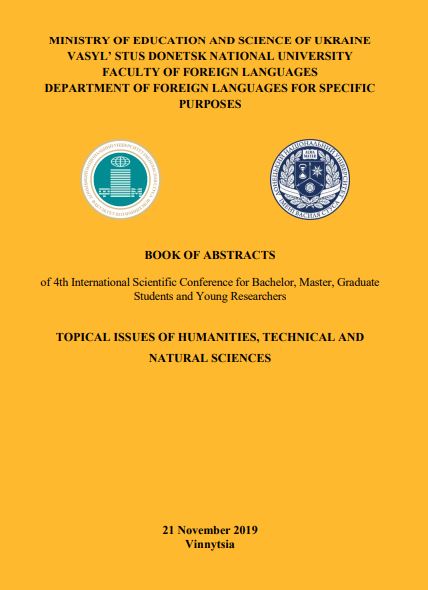Thomas Hobbe’s ideas in the context of Westphalia
Анотація
The formation of the Westphalian system of international relations was initiated by the Peace of Westphalia, concluded on October 24th in 1648 in the form of two treaties, prepared at two congresses which were held in the cities of Westphalia - Münster and Osnabrück. Articles of the Peace of Westphalia laid the foundations of modern world order – they divided the world into national powers and appeared open to the principles of international law and founded the first system of international relations. Main principles of these articles may be found similar to the ideas described in the work of Thomas Hobbes “Leviathan”. Besides that, this philosophic tractate was published in 1651 and may be considered as an approach to reflect and characterise the nature of a state at that time.
Посилання
Goldsmith M.M. Hobbes's Ambiguous Politics History of Political Thought / M.M. Goldsmith. 9. 1990. S. 640–641. Retrieved from: https://philpapers.org/rec/GOLHAP-2
Goodhart M. Theory in Practice: Quentin Skinner's Hobbes, Reconsidered / M. Goodhart. The Review of Politics 62, no. 3. 2000. S. 531-561.
Hobbes T. Leviathan / T. Hobbes. London: Penguin Books, 1981. 736 s.
Skinner Q. Conquest and Consent: Thomas Hobbes and the Engagement Controversy The Interregnum: The Quest for Settlement 1646–1660 / ed. Aylmer, G. E. London: Macmillan, 1974. S.79–93.
The Peace Treaty of Westphalia (1648) and its Consequences for International Relations. Retrieved from: https://orientalreview.org/2017/12/09/peace-treaty-westphalia-1648-consequences-international-relations/
Treaty of Westphalia. Retrieved from: https://avalon.law.yale.edu/17th_century/westphal.asp
Tuck R. Introduction / R. Tuck. Cambridge: Cambridge University Press, 1998. Retrieved from: https://trove.nla.gov.au/work/6967176

